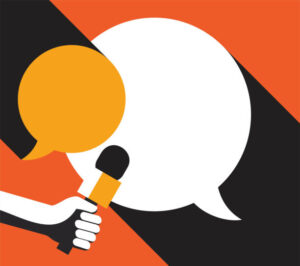The Tao of Interviewing
There is so much of value in Paul McLaughlin’s excellent interviewing book, Asking the Best Questions. It is, as the cover blurb puts it, “a comprehensive interviewing handbook for journalists, podcasters, bloggers, vloggers, influencers, and anyone else who asks questions under pressure.” In his preamble, he points out the biggest weaknesses that we, as interviewers, exhibit.
I’m a great admirer of Steven Pressfield’s wonderful book, The War of Art. As Pressfield emphasizes, when it comes to realizing our artistic ambitions, the real war is with ourselves. He calls our self-imposed constraints “resistance,” by which he means the barriers we put up that keep us from achieving our creative goals.
I believe the same happens with some interviewers. Our resistance can manifest itself in several ways, such as: not conducting sufficient research; not bothering to prepare an interview plan; having our phones or recorders do the listening; not committing to a line of questioning; and, especially, being afraid to ask challenging questions.
In my interview training sessions, I always ask: do you think it’s predominately the guest who won’t answer a difficult question, or is it, more commonly, that the interviewer is afraid to ask it. By far, participants say it’s the latter.
I long ago came to the same conclusion (and I don’t exclude myself from making this mistake). Once you’ve established a rapport with an interviewee, in fact quite often have come to like or, at least, admire that person, it’s hard to pose the challenging question. We want our interviewee to like us. We don’t want to jeopardize the rest of the interview. We’ve been socialized not to upset people, not to ask intrusive questions, especially of people who are not family members or very close friends. But we train ourselves to ask it anyway.
However, part of what we, as interviewers, also have to consider is why we’re asking that probing question. Is it because the subject is relevant, vitally important to understanding the person or issue, or because it’s salacious, sensational, scandalous? Is it any surprise that there’s no magic rule to follow? It relies on another skill journalists — for that matter, all of us — have to develop. It’s a matter of judgement.
Paul McLaughlin’s book, Asking the Best Questions, is published by Centennial College Press.
www.amazon.ca/Asking-Best-Questions-comprehensive-interviewing/dp/0919852858
